
The IBM Data Science certification course is one of the most popular data analytics programs on the market today. It is offered by IBM through Coursera and it helps students build data science and machine learning skills through 10 online courses.
In this review, you’ll learn everything you need to know about IBM Data Science Professional Certificate.
By the end of this review, you’ll know what it takes to become a certified data analyst, how long it will take, what costs are involved and what the learning environment looks like.
If you want to start a career as a data scientist and have no prior experience or a related degree, this is a good certificate to follow. It’s a beginner-friendly course that will help you build job-ready skills and find a job with a good salary, in a high-demanding industry.
You can take this course entirely online at your own pace and time. The exams are easy to pass and the hands-on labs will help you build practical skills and projects to add to your portfolio.
Enroll Now For Free
What is IBM Data Science Professional Certificate?
The IBM Data Science Professional certificate is an online certification program delivered by IBM professionals that helps students to build job-ready skills and start a career as a data analysts. The course is 100% online and it’s suitable for people who have no prior experience with data analytics or a related degree.
Throughout a period of 11 months, students will become experts in data science and machine learning. Besides learning the theory of data analytics, students will learn how to perform data analysis with Python and SQL.
More than 100K students have already enrolled for the course and it’s one of the best Coursera certificates worth pursuing.
Who Should Follow this Certificate?
This certificate is for people who want to start a career in data analysis and data science. Data science jobs are high in demand now and according to several job studies, they will be in high demand for the next 5 years.
Upon completion of the course, you’ll be able to apply for the following jobs:
- Business Intelligence Analyst
- Data Analyst
- Data Architect
- Data Engineer
- Data Scientist
- Machine Learning Engineer
- Marketing Analyst
- Operations Analyst
- Quantitative Analyst
You’ll also join IBM’s Talent Network and connect directly with potential employers (including IBM) that are looking for Data Scientists.
For more study options, read our review of the best data analytics certifications. It includes certifications from Google, CompTIA, and other reputable providers.
What You’ll Learn?
This certification covers both the theoretical and practical aspects of data science and analysis. Three out of the 10 courses are theoretical and the rest (seven courses) are practical.
The most important learning outcomes are:
- What data science is how it works
- What do data scientists/analysts do on a daily basis?
- How to use Python to perform data analysis
- How to work with SQL data sets and various visualization tools
- What is machine learning and how to use ML for data analysis
- How to use tools like Jupyter, GitHub, R Studio, and Watson Studio
- How to work with various data libraries including Pandas, NumPy, Matplotlib, Seaborn, Folium, ipython-sql, Scikit-learn, ScipPy, etc.
- How to create dashboards and interactive reports
Time Investment and Certification
The total time to complete the IBM Data Science Professional Certificate is 176 hours. If you allocate 32 hours of studying per month (8 hours per week), you can finish all courses in 6 months.
If you can allocate more than 8 hours per week, you can finish the certification faster, there are no minimum time limits.
To get certified, you need to complete all 10 courses and pass all exams and assignments.
Enroll Now For Free
How Much Does IBM Data Science Professional Certificate Cost?
The total cost to get the IBM Data Science Professional Certificate is $234. The course is offered by Coursera through a Coursera subscription which costs $39 per month. On average it takes 6 months (6 X $39) for students to complete the course and get certified.
IBM Data Science Professional Certificate Courses
This professional certificate includes 10 courses covering the following topics:
- What is Data Science?
- Tools for Data Science
- Data Science Methodology
- Python for Data Science, AI & Development
- Python Project for Data Science
- Databases and SQL for Data Science with Python
- Data Analysis with Python
- Data Visualization with Python
- Machine Learning with Python
- Applied Data Science Capstone
Course 1: What is Data Science?
This is the first course in the series and it’s an introduction to data science. In a total of 9 hours, you’ll be able to learn from data science practitioners what is data science, what the job entails, what skills you need to build, what career options you have, and in general how data science is used for business data analysis.
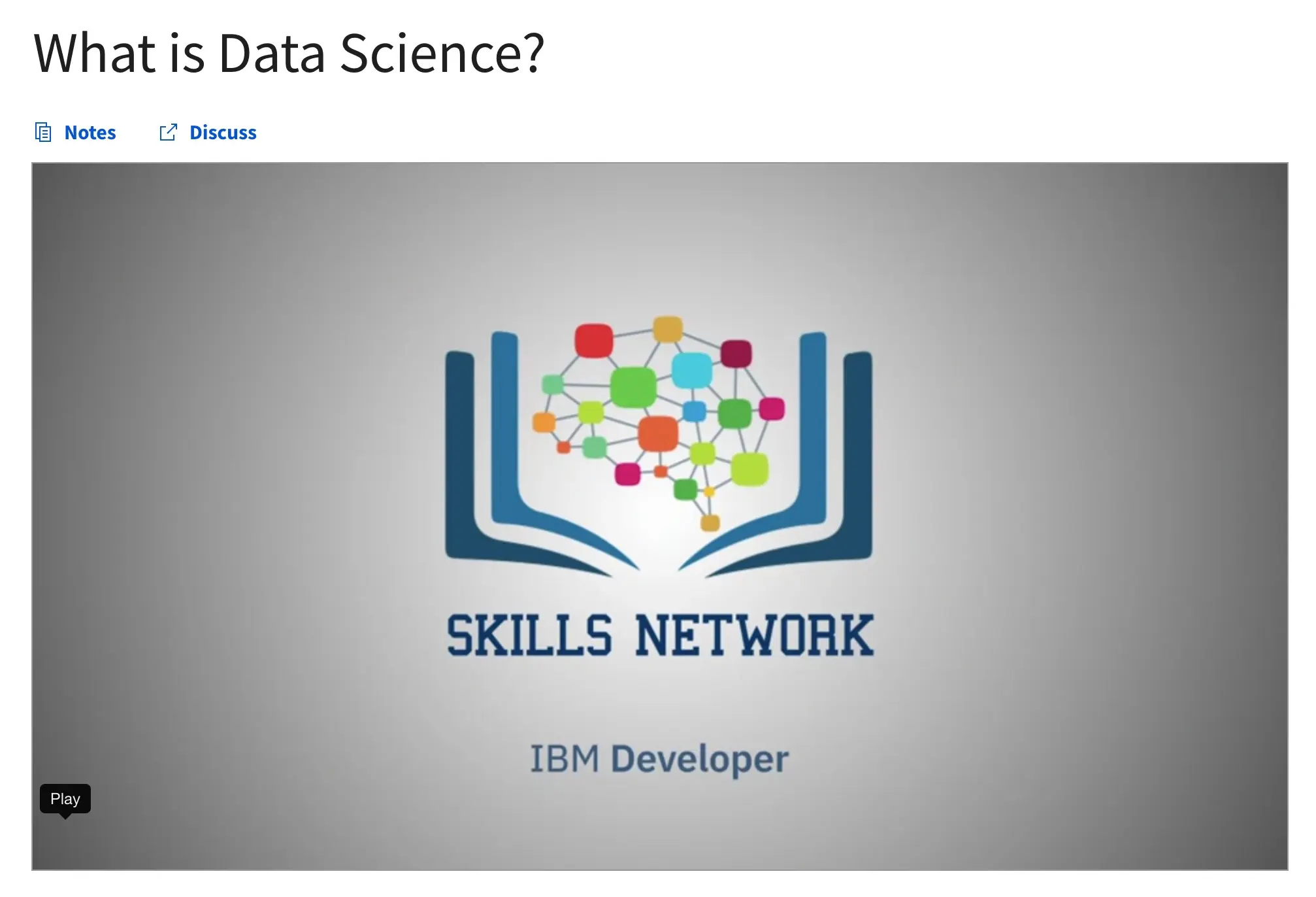
It’s an easy course to follow that can be completed in less than 9 hours. I suggest you finish this course in one or two sittings (4.5 hours each).
Content is delivered in short videos (2-5 minutes each) and the quizzes are multiple-choice questions like this example:
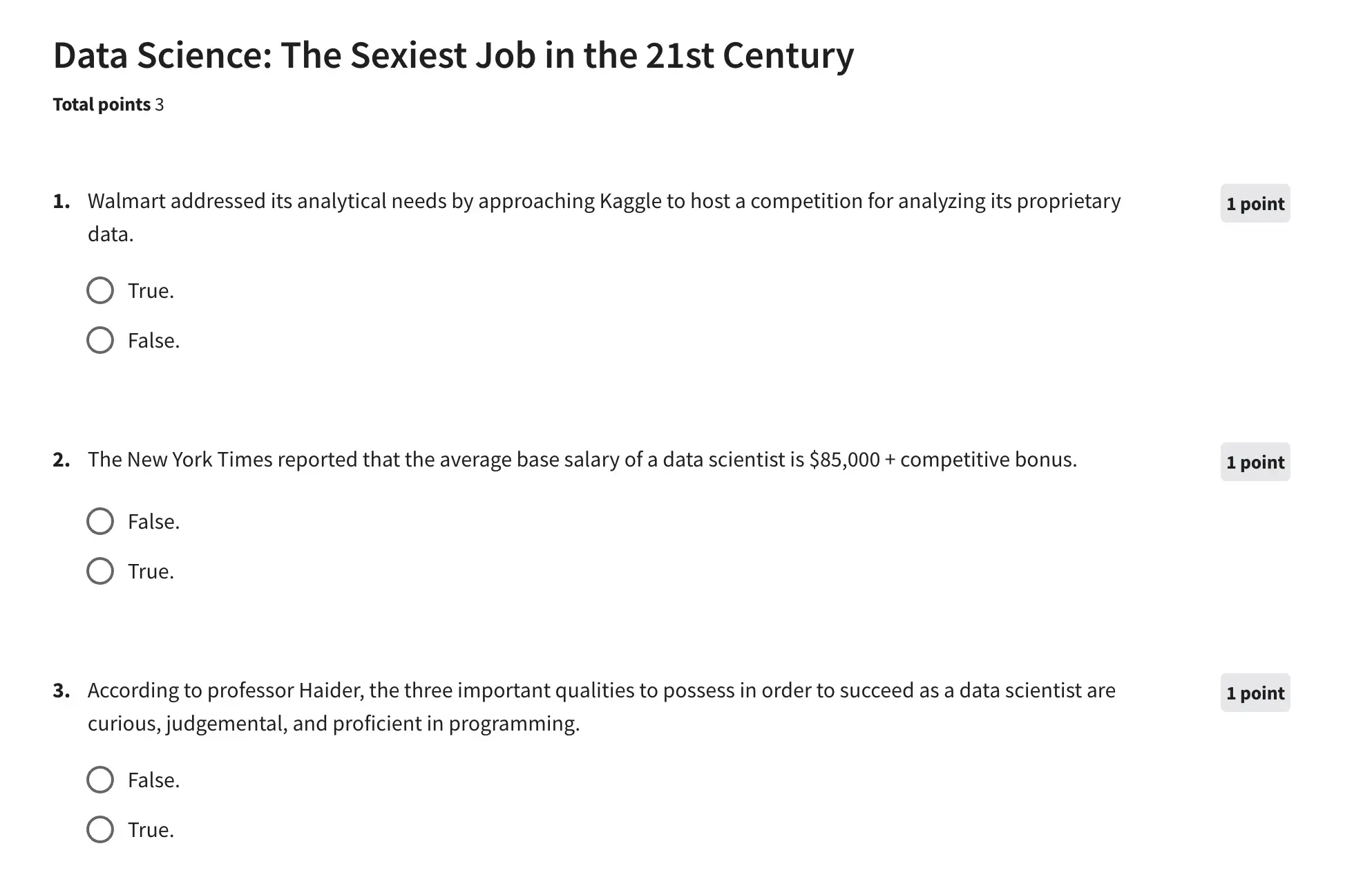
As part of the course coursework, you’ll also be asked to create your IBM Cloud Account to gain access to IBM Watson Studio. The Watson Studio is a platform used by data scientists to explore and analyze data.
To successfully finish this course, you’ll have to submit an assignment (answer 3 open-ended questions) demonstrating your understanding of the concepts discussed in the course and also grade other students’ assignments.
You also have to pass a final exam (multiple-choice – 36 minutes) with a grade of 80% or above. In case you fail to pass an exam, you can retake it 3 times every 24 hours.
The course covers the following topics:
| Week | Topic | Time To Complete |
|---|---|---|
| Week 1 | Defining Data Science and What Data Scientists Do | 2 hours |
| Week 2 | Data Science Topics | 4 hours |
| Week 3 | Data Science in Business | 3 hours |
Course 2: Tools for Data Science
The Tools for Data Science course is the second course in the series and goes deep into data science tools.
In this course, you’ll be introduced to popular data science tools including
- Jupyter Notebooks
- JupyterLab
- RStudio IDE
- Git
- GitHub
- Watson Studio
For each tool, you’ll learn about its main features and how to use them using the IBM Skills Network Labs. You’ll also write some simple code using the Python programming language, R, and Scala.
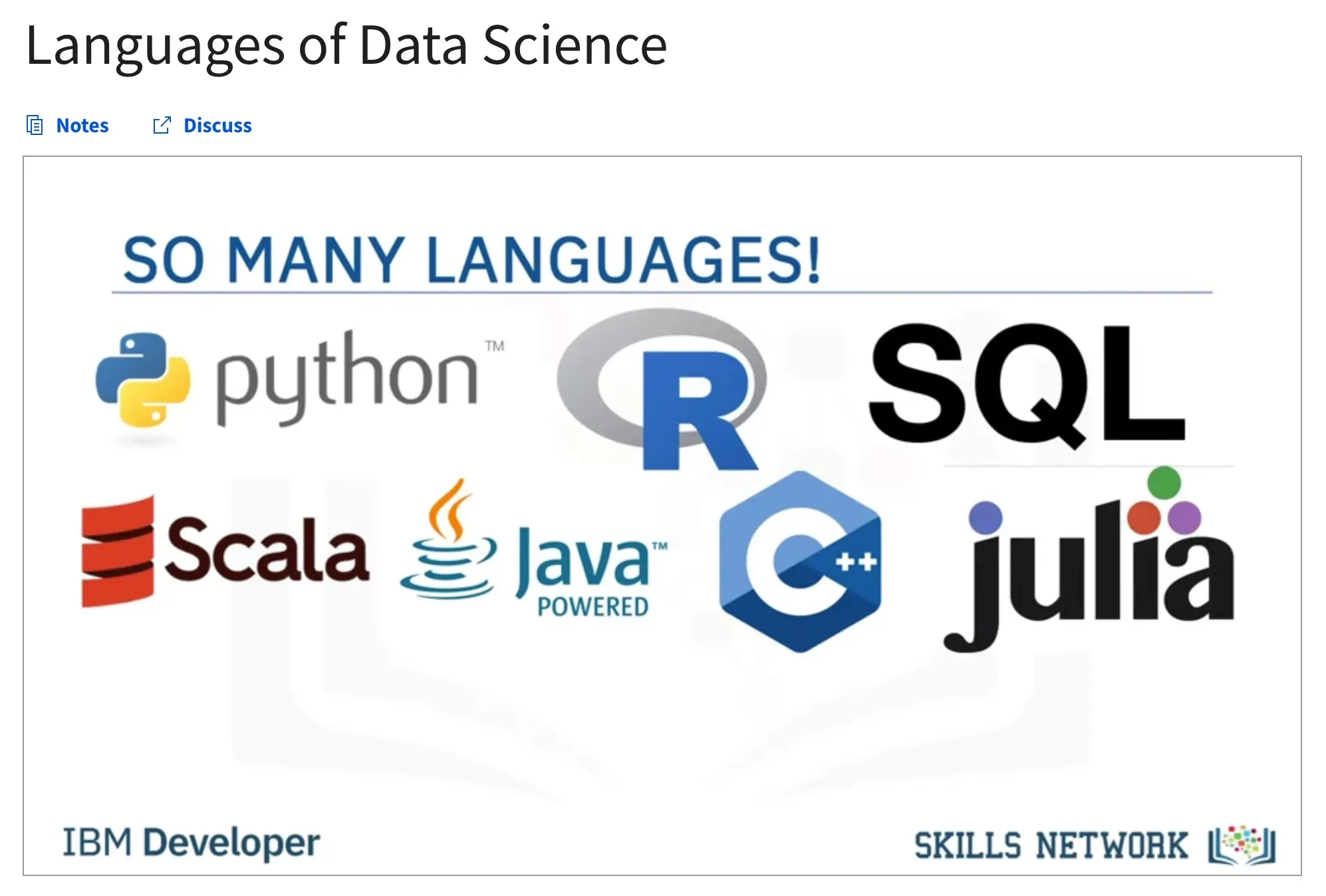
The total time required to complete this course is around 20 hours and the material is broken into 4 weeks as follows:
| Week | Topic | Time To Complete |
|---|---|---|
| Week 1 | Data Scientist’s Toolkit | 3 hours |
| Week 2 | Open Source Tools | 10 hours |
| Week 3 | IBM Tools for Data Science | 5 hours |
| Week 4 | Final Assignment: Create and Share Your Jupyter Notebook | 2 hours |
The course includes 4 hands-on labs and a final exam. Upon completion of the course, you can download your certificate of completion and digital badge.
Course 3: Data Science Methodology
The Data Science Methodology course is the next challenge in your path to becoming a certified data engineer.
In this course, you’ll learn how to approach a data science problem and how to think like a data scientist.
You’ll be introduced to a methodology to use for gathering data, understanding what problems you need to solve, building a data model, and presenting your findings.
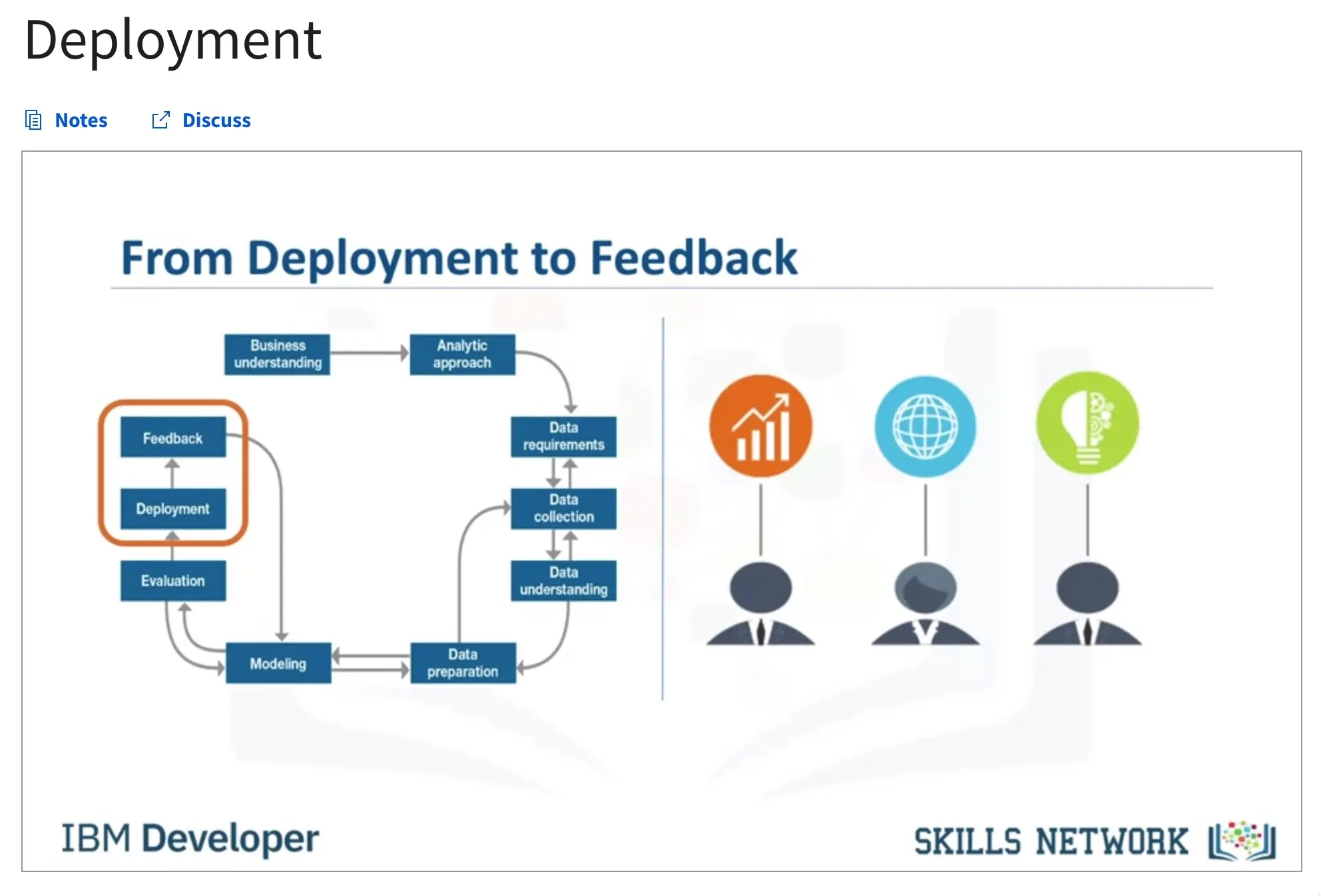
The course is just 9 hours long and can easily be completed in a week (instead of the three weeks suggested in the course outline).
The final exam consists of 12 multiple-choice questions.
| Week | Topic | Time To Complete |
|---|---|---|
| Week 1 | From Problem to Approach and From Requirements to Collection | 3 hours |
| Week 2 | From Understanding to Preparation and From Modeling to Evaluation | 3 hours |
| Week 3 | From Deployment to Feedback | 2 hours |
Course 4: Python for Data Science, AI & Development
The Python for Data Science, AI & Development course is an introduction to programming with Python. The course is for beginners that have no prior experience with programming.
It starts by explaining basic programming concepts such as expressions and variables and takes you step-by-step into creating your first python program.
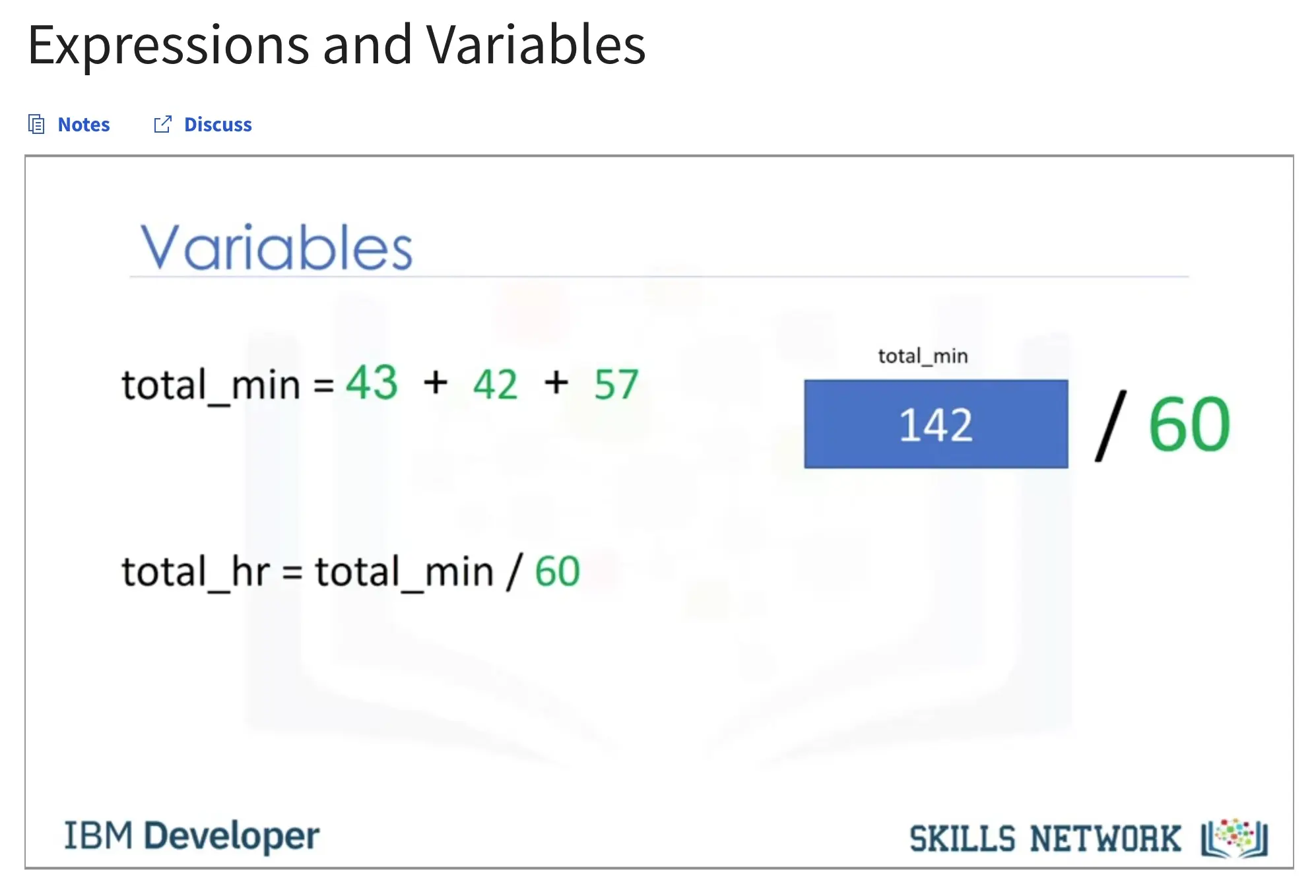
The total time required to complete this course is 23 hours and it’s one of the most important courses in this specialization.
As part of the course-graded exams, you’ll have to work with the Skills Network Labs to go through a number of hands-on exercises.
This is what the lab environment looks like:
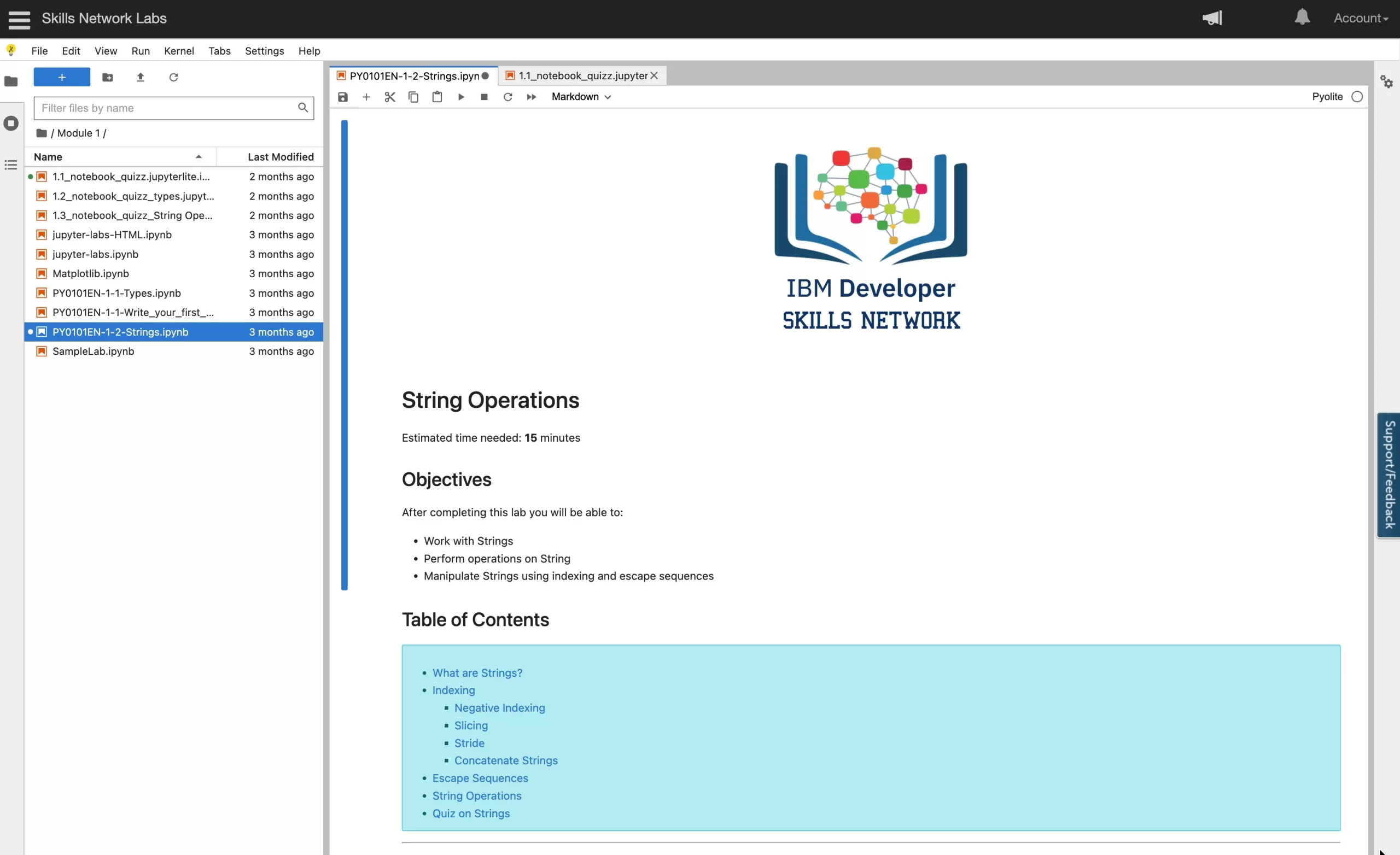
If you have zero experience with programming, you may have to spend more time to re-do some of the labs and practical exercises to gain more confidence with coding and then proceed to the next course.
| Week | Topic | Time To Complete |
|---|---|---|
| Week 1 | Python Basics | 2 hours |
| Week 2 | Python Data Structures | 3 hours |
| Week 3 | Python Programming Fundamentals | 5 hours |
| Week 4 | Working with Data in Python | 7 hours |
| Week 5 | APIs, and Data Collection | 6 hours |
Course 5: Python Project for Data Science
The Python Project for Data Science course is the shortest course in the IBM Data Science Professional Certificate with just 8 hours of material.
To take this course, you first have to complete the Python for Data Science Course. This is the most interesting course in the series since you’ll get a chance to work on a real data science project.
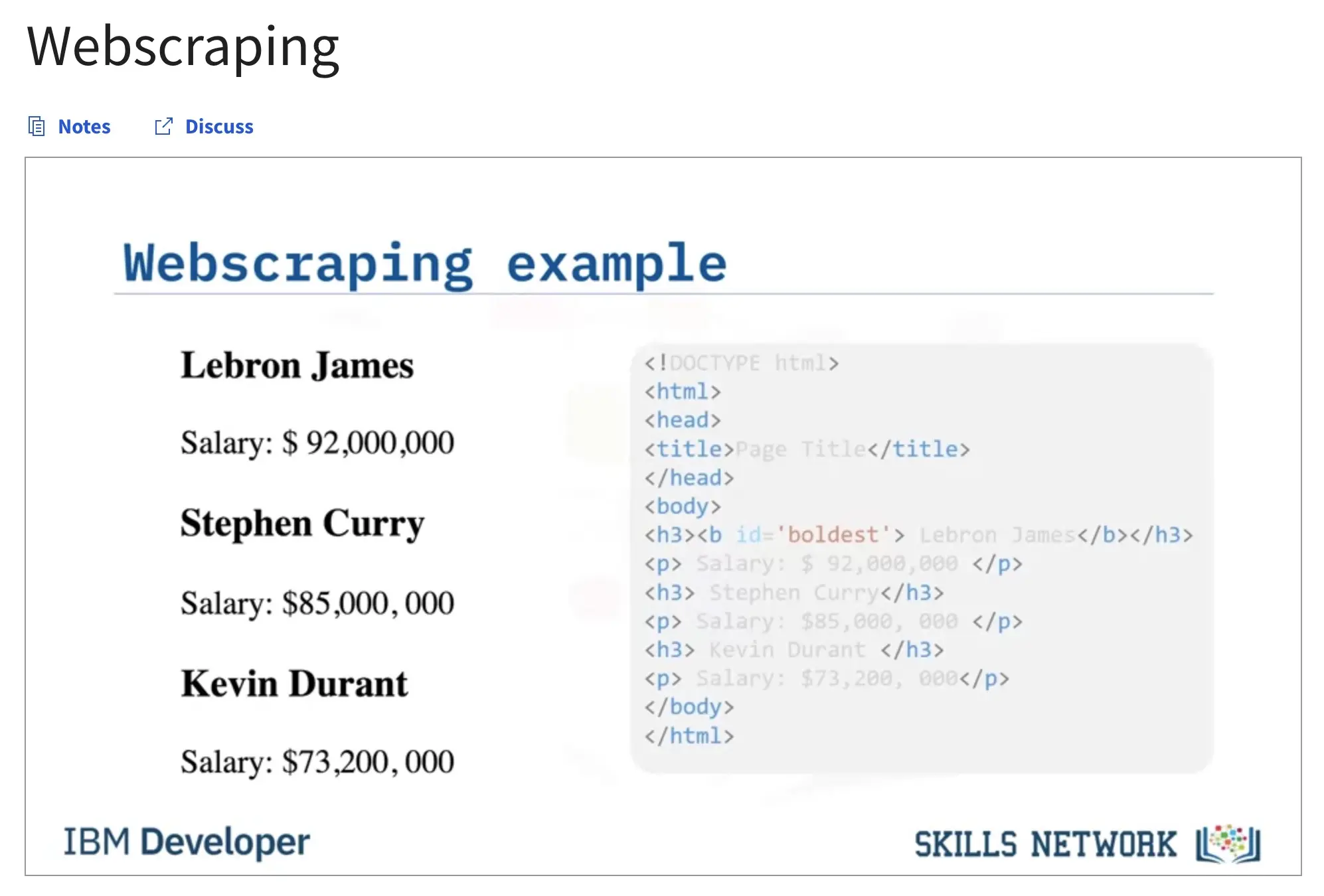
In particular, through the labs, you’ll learn how to perform web scraping in Python to gather data, analyze it and present your findings in a dashboard.
To successfully complete this course, you’ll have to pass two quizzes, submit an assignment (Analyzing Historical Stock/Revenue Data and Building a Dashboard) and grade the work of other students.
| Week | Topic | Time To Complete |
|---|---|---|
| Week 1 | Crowdsourcing Short squeeze Dashboard | 8 hours |
Course 6: Databases and SQL for Data Science with Python
This is the longest course in this certification with 36 hours of taught material broken down into 6 weeks.
The main focus of the course is relational databases and the SQL language. It will help you build very important skills if you want to become a data scientist.
Throughout the lessons, you’ll learn how relational databases work and what you can do with the SQL language.
Through a series of hands-on labs, you’ll learn how to create a database in the cloud, how to run SQL queries, how to use Python to access data from Jupyter notebooks, and many more practical skills.
| Week | Topic | Time To Complete |
|---|---|---|
| Week 1 | Getting Started with SQL | 2 hours |
| Week 2 | Introduction to Relational Databases and Tables | 5 hours |
| Week 3 | Intermediate SQL | 7 hours |
| Week 4 | Accessing Databases using Python | 6 hours |
| Week 5 | Course Assignment | 5 hours |
| Week 6 | Bonus Module: Advanced SQL for Data Engineering (Honors) | 11 hours |
Course 7: Data Analysis with Python
This course goes deep into data analysis with Python. After building your basic programming and SQL skills from the previous courses, in this course, you’ll learn how to work with datasets, data cleaning tasks, machine learning models, and data pipelines.
You’ll get a chance to work with popular data libraries like Pandas, Numpy, and Scipy to load, manipulate, analyze and visualize data.
It’s a highly practical course that simulates the actual work a data analyst is expected to do.
To complete this course, you’ll have to pass all graded quizzes, submit an assignment and review the work of other students.
| Week | Topic | Time To Complete |
|---|---|---|
| Week 1 | Importing Datasets | 2 hours |
| Week 2 | Data Wrangling | 2 hours |
| Week 3 | Exploratory Data Analysis | 2 hours |
| Week 4 | Model Development | 2 hours |
| Week 5 | Model Evaluation | 2 hours |
| Week 6 | Final Assignment | 2 hours |
Course 8: Data Visualization with Python
The Data Visualization with Python course is all about presenting your findings using various visualization tools.
You’ll learn how to use Python libraries such as Matplotlib, Seaborn, and Folium to present data in a way that makes sense to people.
To complete this course, you’ll have to complete a hands-on project. In the assignment, you will take the role of a data analyst and create a dashboard to monitor and report US domestic airline flight performance.
The estimated official time to complete this course is 18 hours but in practice, it may take you up to 25 hours. Some of the tasks you have to complete in the lab are not clear and you may have to revisit the videos a couple of times to get them right.
| Week | Topic | Time To Complete |
|---|---|---|
| Week 1 | Introduction to Data Visualization Tools | 2 hours |
| Week 2 | Basic and Specialized Visualization Tools | 3 hours |
| Week 3 | Advanced Visualizations and Geospatial Data | 3 hours |
| Week 4 | Creating Dashboards with Plotly and Dash | 6 hours |
| Week 5 | Final Project and Exam | 4 hours |
Course 9: Machine Learning with Python
If you’re fascinated by machine learning, you’ll love this course. Although it’s a course for beginners and doesn’t go deep into machine learning, it’s still a great course if you want to learn how machine learning can be used in real-life data analysis scenarios.
The total time investment required to complete all lessons is 24 hours and you’ll get a chance to build new skills for your CV.
The course includes a number of hands-on projects that can also be added to your portfolio to prove your proficiency in using Python for machine learning.
Week 1Introduction to Machine Learning1 hours
| Week | Topic | Time To Complete |
|---|---|---|
| Week 2 | Regression | 5 hours |
| Week 3 | Classification | 5 hours |
| Week 4 | Clustering | 4 hours |
| Week 5 | Recommender Systems | 2 hours |
| Week 6 | Final Project | 7 hours |
Course 10: Applied Data Science Capstone
Once you get to this point, you’ll be just 18 hours away from becoming an IBM certified data scientist! This is the last course in the series and you’ll get a chance to practice everything you have learned from the previous courses.
To be able to take this course, you should first complete all previous courses.
The scenario you’ll work with includes a fictitious company competing against SpaceX. Your task will be to use your data analysis skills to predict the cost of a rocket launch.
Upon completion of the course, you’ll be able to obtain your digital badge from IBM and print your Data Science certification.
| Week | Topic | Time To Complete |
|---|---|---|
| Week 1 | Introduction | 7 hours |
| Week 2 | Exploratory Data Analysis (EDA) | 3 hours |
| Week 3 | Interactive Visual Analytics and Dashboard | 3 hours |
| Week 4 | Predictive Analysis (Classification) | 2 hours |
| Week 5 | Present Your Data-Driven Insights | 3 hours |
IBM Data Science Professional Certificate Exams
To successfully finish the IBM Data Science Professional Certificate, besides completing all lessons you also have to submit all compulsory assignments.
The assignments come in four forms: multiple-choice quizzes, lab exercises, short answer questions, and grading other students’ assignments.
In case you fail an exam, you can retake it a maximum of three times every 24 hours.
Everything that is asked in the exams is covered in the lessons. If you go through the material and carefully follow the instructions in the labs, you’ll have no problem passing the exams on the first attempt.
For some labs related to programming with Python, SQL statements, and Machine Learning, you may have to do some extra practice, especially if this is the first time you have to work with programming-related tasks.
You can see below some sample exam questions to get an idea of what the exams look like.
How Hard is the IBM Data Science Professional Certificate?
The IBM Data Science Professional Certificate is not hard to get. It’s an entry-level certification aimed at people that have no prior experience with data analysis or data science.
The certificate starts by explaining what data science is and how it works and gradually introduces you to the different concepts and tools. The lessons are easy to follow with small digestible lessons and practical exercises.
Some of the courses that cover intermediate and advanced topics can only be completed after finishing the fundamental courses and this ensures that students can go through the material without problems.
What is challenging when taking this certificate is the time investment needed to complete all courses and exams. It may take between 6 months (studying 8 hours per week) to 11 months (4 hours per week). That’s a long time to stay focused and keep a schedule provided that its self-paced learning and there are no hard deadlines.
Enroll Now For Free
Is the IBM Data Science Professional Certificate Worth it?
The IBM Data Science Professional Certificate is definitely worth it. It’s a professional certificate awarded by IBM which is a trusted name in data science and analytics. All courses and lessons are prepared and delivered by IBM professionals and are highly practical simulating the tasks a data scientist is expected to perform in the real world.
In terms of cost, you can get certified for less than $300 (depending on how many months you can complete the 10 courses and exams), an amount that is reasonable for the value you get and the skills you can build.
Data science-related jobs are high in demand now with a salary of more than $70,000 per year (in the US). This trend is expected to continue in the next few years as more and more companies are looking for certified data analysts to help them with gathering and analyzing data.
In addition by signing up for this certificate, you can join the IBM Talent Network which is a platform for helping you find a job.
Finally, many of the courses in this certificate are also part of other certificates. This means that by taking a few extra courses, you can get more certificates to enrich your CV.
In particular, you can pursue the IBM Data Analyst Professional Certificate, the IBM Data Engineering Professional Certificate, and the IBM AI Engineering Professional Certificate.
Enroll Now For Free
Other Data Science Certifications
Alternative certifications for the IBM Data Science Professional include the four certificates by IBM listed above and the Google Data Analytics Certification.
If data science and analytics is not a career path you want to pursue, you can consider taking a digital marketing certification and entering the marketing industry as a digital marketer. It requires no programming skills and it’s also a career option that has a bright future for years to come.
You can also consider a Google Certification in other areas like IT Support, Project Management, or UX Design.
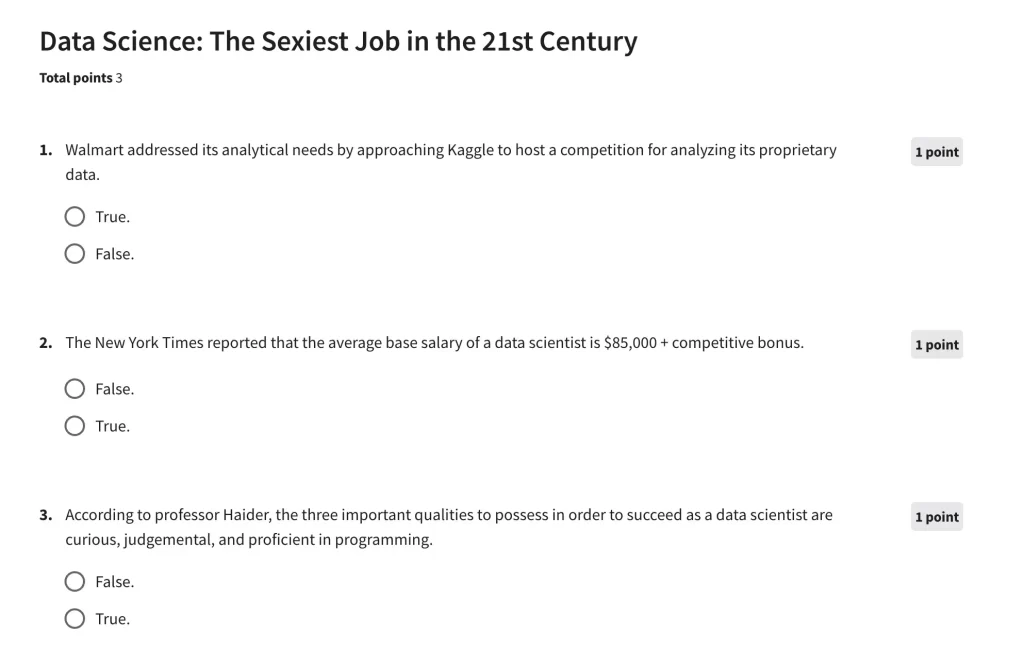
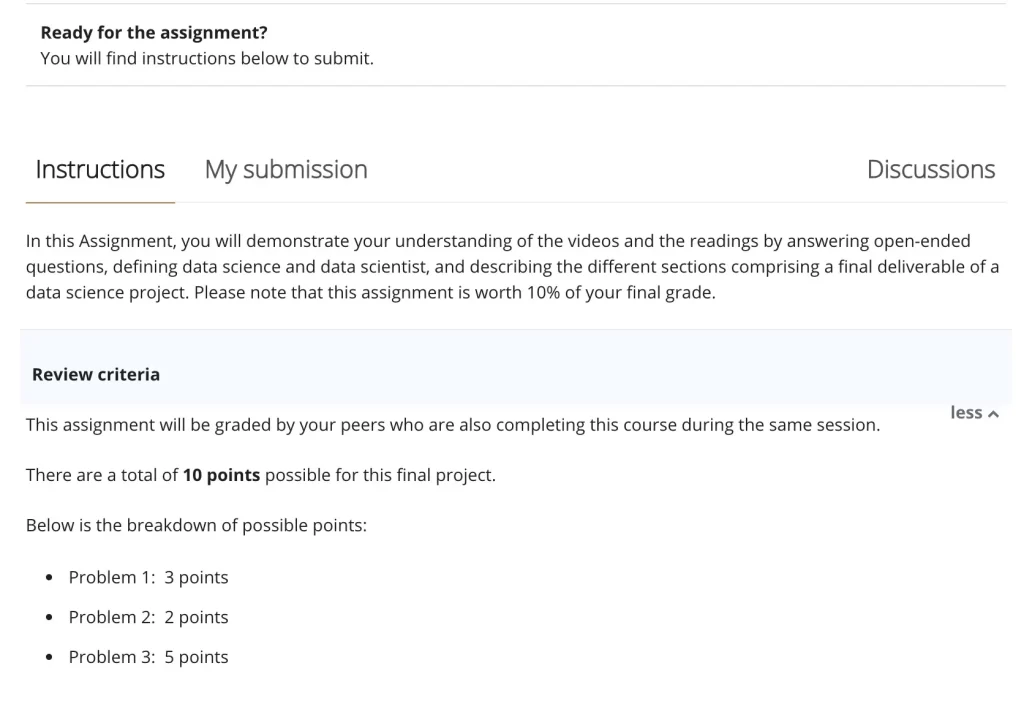







![10 Best Business Intelligence Certifications [Free & Paid]](https://seoffix.com/wp-content/uploads/2024/01//10-best-business-intelligence-certifications-free-paid.jpg)